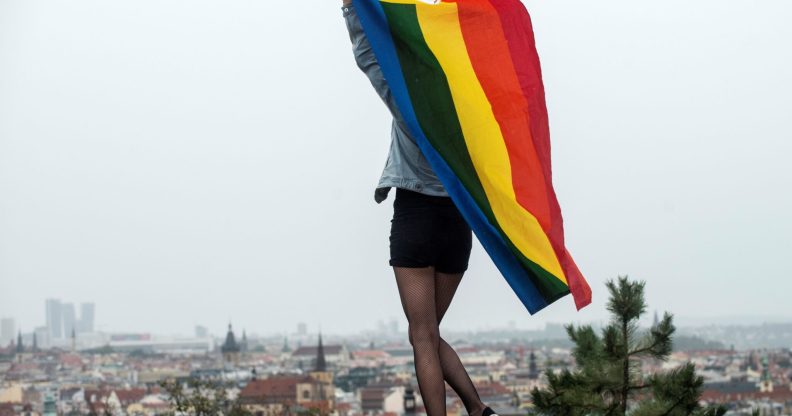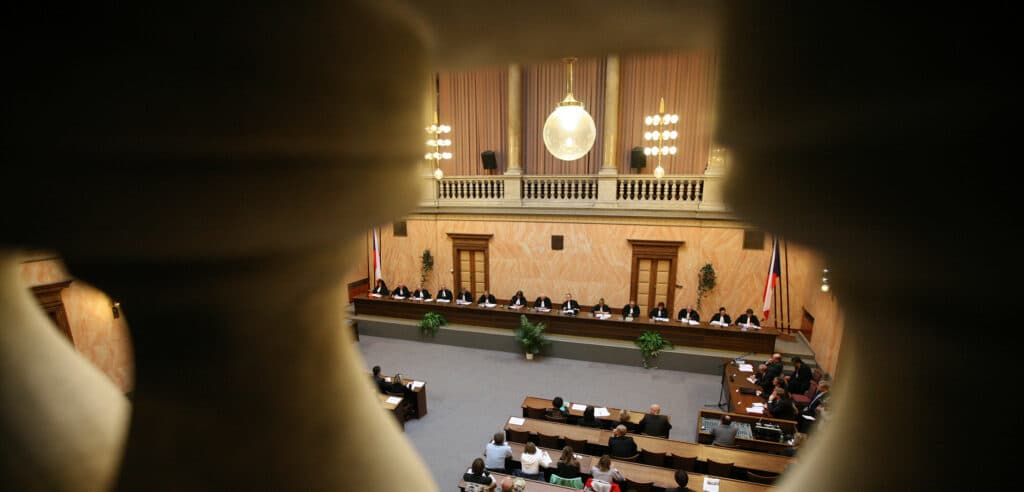Czech courts kick can down the road over legal recognition of non-binary people

One of Czech’s highest courts has refused to let a non-binary person amend their state ID. (MICHAL CIZEK/AFP via Getty Images)
One of Czech's highest courts has refused to let a non-binary person amend their state ID. (MICHAL CIZEK/AFP via Getty Images)
A top court in the Czech Republic has refused to let a non-binary person change their state identification to reflect their gender identity.
The Czech Constitutional Court ruled on Tuesday (21 June) that the courts have no power to change this – it is up to parliamentarians.
The complainant hoped to change what they saw as the gender marker on their rodné číslo, a unique 10-digit number assigned to every person living in the central European country, to “neutral”.
A rodné číslo is a vital part of Czech life. Given at birth, the number is needed for applying to jobs, accessing social welfare and health insurance programmes and paying taxes.
The complainant’s rodné číslo says they are legally male, they argued. They said the Department of Administrative Activities, which assigns rodné číslos and part of the Ministry of the Interior, refusing to amend their birth number violated their constitutional rights.
The complainant had lodged an appeal to the Constitutional Court after both the Supreme Administrative Court and the Municipal Court in Prague ruled they cannot have their rodné číslo amended in any way.
In a damning blow to non-binary rights, justice Milada Tomková argued that the number does not have a gender marker at all.
Under the Population Registration Act, only two forms of rodné číslo can be issued to people – one listing the person’s date of birth as normal and one that has an additional 50 added to the month part of the number.
Section 13 of the Population Act specifies that “for women, [increase the code] by 50”. Yet Tomková said that technically speaking, the numbers don’t reveal a person’s gender identity. The reason why people may think this is because of the “binary” view of gender held in the Czech Republic.

Judges of the Czech Republic’s Constitutional Court ruled that the idea gender is ‘binary’ is a social attitude that the court doesn’t have the power to change. (Krystof Hofman/AFP via Getty Images)
“However, this is due to the generally accepted binary understanding of human existence in the Czech Republic, not to the birth number itself, which is not inherently masculine,” the ruling stated.
Even if the complainant became legally non-binary their rodné číslo would not need to be altered, Tomková said.
The ruling caps off the plaintiff’s exhaustive effort to have the state legally recognise them as non-binary.
After administrators declined to issue them a new rodné číslo, they lodged a separate motion to the courts to repeal provisions of the Civil Code and the Health Services Act that say for a trans person to be legally recognised as their gender they must undergo some form of gender-affirming surgery.
The complainant also sought to overturn section 13 of the Population Registration Act.
The Second Chamber of the Constitutional Court referred the case to the Plenum. The court’s assembly of justices dismissed the complainant in March, saying their case was “not well-founded”.
Judges said it was “unclear what the complainant seeks to achieve since they cannot even decide whether they consider themselves to be a male or a female”.
Only if society drops the idea that gender is a “binary” and new laws from the Parliament of the Czech Republic are passed to reflect this could a third gender marker be considered for state-issued ID, the justices concluded. The courts must remain “impartial” until then.
The Czech Republic is generally considered a standard-bearer of LGBTQ+ rights in the eastern bloc. Though hallmark rights such as marriage equality and same-sex adoptions are not in law, Czech law fully bans anti-LGBTQ+ discrimination and the public are steadily more accepting of queer people.
But activists have warned that the nation risks lurching into bigotry like Poland and Hungary. Politicians are still rejecting calls for a conversion therapy ban and other LGBTQ+ equality issues and others are holding homophobes-in-chief like Polish prime minister Mateusz Morawiecki and Hungarian leader Viktor Orbán as “role models”.

